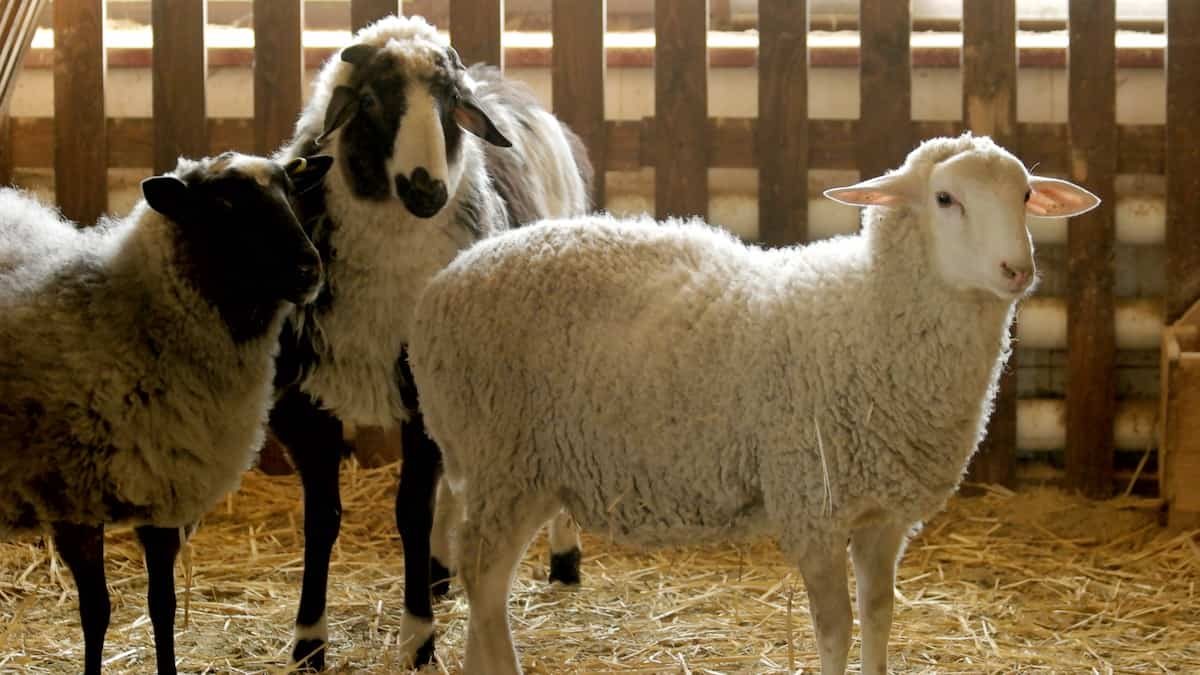Sheep farming is a profitable and sustainable agribusiness providing a good income source for farmers. Establishing and maintaining a successful sheep farm requires hard work, dedication, and proper management. Let us dive into full details of this.

How to Start Sheep Farming in 10 Steps
Develop a Business Plan
The first step in starting a sheep farming business is to develop a comprehensive business plan. This should include your goals, objectives, and strategies for the farm. You should also research the market to determine the demand for sheep products, such as wool and meat, and identify potential customers. In addition, you should consider the costs of purchasing and maintaining the land, buying livestock, and hiring labor.
Choose a Location
Choosing the right location is critical for the success of your sheep farming business. You should look for land with sufficient pasture and water resources to support your flock. The land should also be easily accessible for transporting supplies and animals. Additionally, you should consider the climate, as sheep thrive in moderate temperatures and require protection from extreme weather conditions.
Necessary Permits and Licenses
Before starting a sheep farming business, you must obtain permits and licenses for your state or local government requirement. These may include zoning permits, environmental permits, and business licenses. Failure to obtain these permits can result in fines or legal issues that can negatively impact your business.
Purchase Livestock
Once you have secured a location and obtained the necessary permits and licenses, you can purchase livestock. You should choose breeds that are well-suited to your climate and market demand. Additionally, you should select healthy animals with good genetics, as this will help to ensure their productivity and profitability.
Develop a Management Plan
Developing a management plan is essential for the success of your sheep farming business. This plan should include a feeding program, a vaccination schedule, and disease prevention strategies. You should also establish a breeding program to ensure a steady supply of lambs for meat and wool production. Finally, you should develop a marketing plan to promote your products and attract customers.
Establish Infrastructure
You must establish the necessary infrastructure to manage your sheep effectively, like fencing, a water supply system, shelter, and storage facilities. Sheep require enough space to graze, access to clean water, and protection from harsh weather conditions. Investing in high-quality infrastructure that is durable and safe for your animals is important.
Hire and Train Staff
Running a sheep farm requires a team effort, and you may need to hire staff to help you manage your flock. You should look for individuals with experience in livestock management and train them on your farm’s management practices. It’s important to communicate clearly about expectations and provide regular feedback and training to your staff to ensure they work efficiently and effectively.
In case you missed it: Top 5 Government Sheep Farming Subsidy Schemes in India

Care for your Sheep
Caring for sheep in commercial production involves a range of practices that ensure the health and well-being of the flock. It is essential to provide them with adequate food, water, shelter, proper veterinary care, and regular monitoring. Regular hoof trimming and shearing also play a vital role in maintaining sheep health while managing parasites and preventing diseases through vaccinations, and biosecurity measures are crucial for disease prevention.
Additionally, providing ample space for the flock to move around and ensuring that their living conditions are clean and comfortable can help to minimize stress and promote optimal growth and productivity. Overall, successful sheep farming requires a deep understanding of the animal’s needs and a commitment to providing them with the care and attention they require.
Manage Finances
Running a sheep farming business involves significant financial investments and risks. You should keep track of your expenses and revenue to manage your finances effectively. This includes budgeting for animal feed, labor costs, equipment, insurance, and taxes. Additionally, you should consider developing a marketing plan to increase sales and profits.
Evaluate and Adjust
Finally, you should continually evaluate your farm’s performance and adjust as needed. This includes assessing the productivity of your flock, monitoring market trends, and identifying areas of improvement. Over time, reacting to market changes and improving management can boost your farm’s profitability and sustainability.
In case you missed it: Top 10 Sheep Diseases: Symptoms, Causes, Prevention, and Control

Grains, such as corn or barley, can be added to the diet in small amounts to increase energy levels and promote weight gain. Overall, a well-balanced diet that meets the nutritional needs of the sheep is crucial for their health, growth, and productivity.
Conclusion
In conclusion, starting a sheep farming business can be profitable if done correctly. Keep up with industry advances, be flexible and adaptive, and work hard to have a healthy, happy flock.
- Feed Your Flock for Less: Top 10 Tips to Save on Chicken Feed
- Ultimate Guide to Ossabaw Island Hog: Breeding, Raising, Diet, and Care
- Hatching Answers: The Top 10 Reasons Your Chickens Aren’t Laying Eggs
- Eggs and Economics: Breaking Down the Cost of Raising Backyard Chickens
- Defend Your Greens: Proven Methods to Keep Iguanas Out of Your Garden
- Ultimate Guide to Cinnamon Queen Chicken: A Comprehensive Guide for Beginners
- Ultimate Guide to California Tan Chicken: Breeding, Raising, Diet, Egg-Production and Care
- Ultimate Guide to Marsh Daisy Chicken: Breeding, Raising, Diet, and Care
- 10 Types of Chicken Farming Businesses You Can Start for Profits